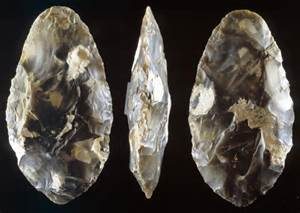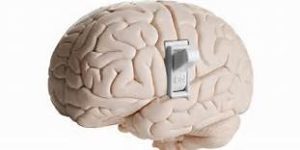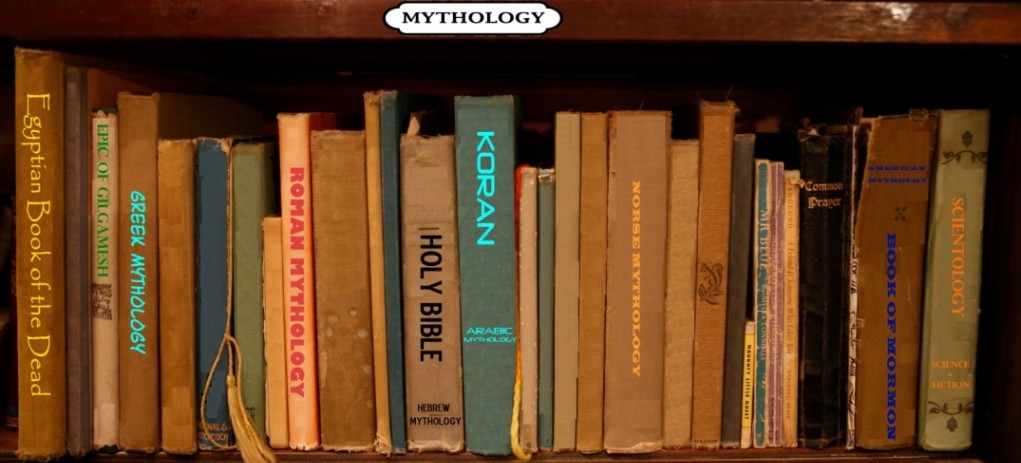
Do we have free will, or does our brain choose everything we think or do as a result of previous brain states and sensory inputs, and it could not have done anything else? The evolutionary biologist Jerry Coyne has been tackling this question for years now, and you can find a number of enlightening threads on the topic HERE from his website “Why Evolution is True.”
Coyne agrees with the primatologist/neuroscientist Robert Sapolsky’s views:
Sapolsky’s conclusions about free will are largely the same as mine: determinism rules; there’s no such thing as “could have done otherwise” free will;… And, like me, he recognizes that
we can’t not feel that we have free will (emphasis mine).
Determinism. We do not have choice. No free will. Our brains choose what we do, and could not have chosen otherwise given the previous state of all our billions of neurons. Our neurons fire and cause an action, and we (the conscious part of our brain, the self) feel like we chose that action, given all the deliberation and fact-finding and weighing of alternatives that we put into that act of deciding. Sapolsky and Coyne, two prominent biological researchers and modern intellectuals whom I greatly admire for their own research, their clear-headed realism and formidable science communication skills, both agree, along with this determinism that as stated above we still feel like we have free will, it sure seems like that we do choose what we do.
I am on still on the fence about free will and this essay is an attempt to think it all through. There is something missing here and it is tied up with a particular view of consciousness: that conscious thought is an evolutionary spandrel somehow, a side effect and it has no real input into what we do. As Coyne notes in one of his many thoughtful pieces on the subject, why aren’t we just zombies not having any conscious deliberation at all since the unconscious parts of our brains choose all of our behaviors anyway, why be aware of any of our actions at all, if it serves no purpose and doesn’t affect our behavior.
That’s the question I think that needs exploring. We are conscious, often up to 18 hours a day, from the second we wake up, we are aware and review our own thoughts and use that continual thinking to plan ahead; our day, our very next behavior, our work, when to take lunch, whether to shower, get dressed, or clean the kitchen first…or to get gas and drive across town and still make it on time for work or for class. And how to finish our training in the next few years for some more lucrative and fulfilling career and then get married and have kids well before we turn 40, so we can enjoy emotional and sexual companionship with a spouse or some significant other for much of our lives, raise children and travel a bit, before we end up in the nursing home of our choice, just before we croak. Maybe even write those books we’ve been threatening to write for years now, and/or give back to our community thru charity, or be active in politics to make the world a better place for others now, and for future generations full of other human beings we will never meet. Seems like a LOT of choices to make, that WE make, continually throughout our lives, short and long term. Deliberation and choice seem to occupy most of every waking minute of every day, all our lives. Sure feels like we choose, based on the info we consciously gather.
All this is a spandrel? A useless side effect of our human evolution? We are conscious to this degree, well beyond other animals (to whatever degree many claim they are conscious), for no reason whatsoever, our brains choose what we do regardless of our conscious deliberation. It has no effect? It just seems like we choose our possible paths, but we really don’t? All thought is merely rumination over what the unconscious part of our brains already chose for us. Thinking about your future has no input to what your brain will choose anyway? So as Jerry Coyne asks, is consciousness merely a spandrel and we could accomplish the same behaviors without it? It evolved as a byproduct of some evolutionary force, some adaptation, but actually has no use? There is something really smarmy about all this and I have not identified it yet. To use a typical spatial-force metaphor (of the kind we use for all abstract thought):
“I can’t quite put my finger on it yet.”

So despite not having any choice about what our brains will choose for us, we sure feel like WE make the decision to do x, and could have chosen y if we wanted to. But maybe its all the fact finding that goes into our decisions, that we cannot predict the outcome of ahead of time, the presently unknown data we will collect, and how we will respond to that data and all the other unpredictable events in our lives that will occur, that gives us that feeling of free will that Sapolsky and Coyne both agree we do not have, but sure feel like we do.
So how does this happen? I’m going to try to unpack their claim, which I agree they are prolly correct on: having given it much more thought than I, and over years of discussion, especially Coyne thru his website. I still have this feeling that conscious deliberation and planning somehow affects the other parts of our brain, not in our conscious control, that makes the decision for us. And if I am wrong, that it is all determined, then at least I might explain why it feels like we have choice, free will. Given all the input, “we could not have done otherwise” OK, but unlike other animals blindly following smells and visual inputs, we consciously mull over a multitude of action plans and steps almost continuously during our waking moments, on decisions large and small, trivial and magnanimous, immediate and far in the future. From choosing these words as I write: shall I say “trivial” or “minor”?…hmmm…. I like trivial best, it has the correct sense to it, like the choice of which of these two words is itself “trivial” in the grand scheme of things…so I feel like “I” the self part of my brain, the “me” part weighed these options and chose “trivial” and sent that command to my motor strip that runs my fingers and in mere milliseconds, in real time, I type, “trivial” and not “minor”! Boom, done! I chose it with some thought about which one sounded best, felt right, I did that, my brain didn’t unconsciously choose that for me: I did it, and commanded the rest of my brain to carry out that choice. But me and my brain are “me” We aren’t separate. My brain didnt choose it for me because, I am my brain and nothing else. But maybe because one part of my brain (one system, the conscious deliberator-interpreter part), feels separate in paying attention to what the rest of my brain is doing, it sure feels like I chose it even if I could not have chosen otherwise…but I didnt know that ahead of time, I didnt know what I would choose!!
Maybe it is because the conscious network is a subset of the rest of my brain. The “brain” is not one singular entity/function altho we speak of it that way. SO the conscious network (can’t use the term “module”, there are multiple interconnected modules involved), is separate from the unconscious processing that dominates our brain. If the psychologist Michael Graziano is correct, this conscious network or module pays attention to what our brain is doing. We pay attention to our own attention, basically. He has named it the Attention Schema Theory. The cognitive neuroscientist Michael Gazzaniga’s thoughts on this are quite similar, to my mind. He proposes that our left brain language areas act as our interpreter, watching and making sense of our own actions. For example, you and I can easily make the statement “I am seeing with my eyes right here, right now” (that phrase courtesy of the neuroscientist Antonio Damasio).
(Sure are a lot of them “eye-talian” fellers working on this stuff, huh, like me!) (Just to carry on with that digression: Coyne is Jewish, and the name Sapolsky sounds like a Russian Jew (I guessed right!!, thank you wikipedia) and ,Stanislaus DeHaene is French and Kristof Koch is of German descent I assume, while V.S. Ramachandran hails from the Indian subcontinent, Patricia Chuchland is Canadian, Dave Chalmers is Australian,…I could go on but one thing among many I love about science is that it is truly diverse and egalitarian. People from all around the globe can and do participate in science, and NOBODY is an authority. Everyone contributes…just sayin’)
We can observe that we are seeing, at this moment in this place, and using our eyes. Other animals see, and with their eyes, but there is absolutely no evidence they can entertain the thought that includes the concept “I” and “eyes” much less understand time or spatial location or what “seeing” truly entails. They can see with their eyes but don’t know they are doing it, have no clue what that means. We pay attention to our own attention, to what our brains are working on if Graziano and Gazzaniga are correct, and that I suspect gives us another feeling of being in control and choosing our actions freely.
We can and often do pay attention to what our brains are attending to and we re-represent that in conscious thought, using concepts like “eyes”, “seeing”, “at this moment”, “in this place”. Like I said, I don’t think your dog entertains any such thoughts, having none of these concepts. His eye can hurt or water and he sees with his eyes just as we do with ours, but he has no knowledge of that, we do, and we can direct our eyes to whatever we choose to look at, in addition to the mere stimulus-response to visual or auditory input that your dog operates on, which also can direct our gaze towards something quite automatically. Even though our individual eye movements of 50-60 short shifts per minute are not consciously planned, what we are thinking about and attending to consciously, directs overall what we are looking at and attending to. That is under conscious control and again feels like free will.

I’m going to use the manufacturing process of making these advanced finely made and symmetric handaxes from late in human evolution as an example of what our consciousness is all about: full of planning, contingent steps, deliberate problem solving, analysis, fact-finding, long-term and immediate on-the-fly decision making.
To make one of these stone tools pictured above, dating to about 500,000 years ago, one needs to choose the right kind of stone and have a rough idea of final shape in mind to sculpt, as it were, out of the random shape of the rock you start with. Then over a period of 30-40 minutes and hundreds of blows, striking off the flakes of stone you don’t want, using 4 different types of blows in no pre-planned order you hope to arrive at something with straight edges, left-right symmetry, evenly thinned on both sides in that teardrop shape, the butt-end the proper size and thickness to fit firmly in the palm of the hand and the pointed end sharp and thick enough to chop and cut with without being too thin to easily snap off. Making these symmetric, finely worked tools, sculpting them from raw haphazardly shaped rocks may represent one of our first complex decision trees where we consciously mull over, again and again what to do next. Each step requires another decision with multiple choices to choose from, what to do next is not obvious, not pre-planned as part of an unchanging repetitive sequence. Every strike of the hammerstone on the tool you are making is contingent on what happened before: how the stone flaked, how well you executed the previous hit, is the edge looking straight or does the tool need more thinning, is it taking proper shape, will I be able to get that next piece off correctly or should I try something else…hmmm?

The beginning of choice: the multitude of immediate contingent steps in this handaxe reduction (sculpting), choices by the second. The beginning of mulling it over, so many paths to choose, the flintknapper turns the tool over and over inspecting the condition of this side and that this edge, trim this first, shape it next, grind away to make a platform and thin now or try the other side first because this ridge isnt very long??? And….on and on. Choices to be made, one after another. No two reduction sequences are alike.
This manufacturing from scratch is very unlike the rote, repetitive, almost mindless procedures of food processing: peeling, soaking, scraping, pounding, flattening, baking…There is some decision making but its minimal in comparison and doesn’t vary much in practice. But with stone tool manufacture, you turn the tool over and see that you only got half of the long flake off you wanted, the last blow only took off a part of the protrusion of rock you needed to remove to get it as flat as preferred, so, shit, now you will have to go at it from the other side and look for way, trying to decide what to do next. And decision steps like these happen hundreds of times, at almost every step in a half hour of making one of these tools. It seems like “we” have a free will choice, I could choose to do X, but I finally chose to do Y, whether in chipping a rock right now, or over a longer term decision where you deliberated for months: agonized over committing to that job, this relationship, graduate school, fix the car, buy a house, have kids, whatever.
Maybe the confusion is such that we are not something separate from our brains. We are our brains, or rather our brains ARE us. As Graziano says, the self is what the brain calls itself. Other animals don’t do this, they have no conceptual apparatus to mediate it. But we do have a conscious system that observes what we do, what we could do, what we might do and what we just did.

So our brain has so many choices to chip away at this side or that, start here, finish this first, so many paths to take, and the key I think, is that each path ahead is not known ahead of time, and the choice you ultimately make, determined or not, is not known. You got to school to get a degree, and that could change, or you may find a path within that degree you had no idea about ahead of time. Life is like that at every turn. I’ve avoided really thinking about the whole discussion because whether we have free choices or not we act as if we we do every day, WE DON’T KNOW WHAT WE ARE GOING TO CHOOSE…so it feels free.
For example, when I decided this past fall to start my own secular meetup group, and then I started the MCFH group (McHenry County Freethinkers and Humanists), after 2 meetings one member whom I never met before, offered to do a presentation on Free Will, and before that nite, even during that meeting and my head swimming with all the ideas he presented, I finally resolved to tackle what I thought of Free Will, after avoiding the subject for nearly a decade. SO,if I hadn’t started the MCFH 6 months ago, I wouldn’t be writing this blog right now. Altho I could not have made other choices, I had no idea what choices I (my brain) would make and what experiences and info would come of those choices. I can’t model or foresee all the possibilities of what the tide may bring…
Consciousness seems to do at least 2 things: it externalizes our motivations and seeks sensory input that our unconscious drives for hunger, thirst, or warmth do not compel us to seek. Animals don’t make plans, they don’t solve problems of their own choosing and discovery. They follow their basic urges and respond to random sensory input from the environment. Your dog monitors the backyard with his incredible sense of smell, cocking his ears with his also incredibly sensitive hearing. This is normal and automatic waking dog behavior…scanning its environment for something to eat. When the waft of the odor of a squirrel drifts to his nose, he is on heightened alert, cocking his ears in that direction, detecting the culprit rustling in the leaves just beyond the tree and bolts in that direction, choking himself like he has innumerable times before… when the chain on his collar runs out. He barks his brains out like he always does, unable to reach that damn squirrel once again. Then he gives up and goes back to sunning himself in the noonday warmth. He is not thinking about what he is going to do next Tuesday, much less this afternoon, nor in the next five minutes. He has none of those concepts of place and time and duration, but you do, and your thoughts are occupied with such things, every minute you are awake. Your automatic behavior is not to sniff out small animals to eat, you start to think the moment you wake, every day without fail. Your automatic behavior as a conscious human is to plan ahead, solve problems, make decisions, search for new places, find meaning in what you do.
Given the input you sought, your brain couldn’t choose otherwise what to do next, but it wouldn’t have the input for that choice without conscious deliberation based on the motivation (to make this tool, to get up early, to go to college, have kids, move out of state, etc.) and the input searches you consciously pursue. So consciousness is not a spandrel at all, but an incredibly useful cognitive strategy for expanding ones problem-solving space. How can I make this tool? When can I finish college? What is over that next hill?

Consciousness is the brain’s way of monitoring itself and expanding it’s choice space to infinity. (I just made that up). By not reviewing, modeling if you will, its own behaviors, the brain is limited to instinctual rote behaviors, environmental monitoring and perceptual response, genetically programmed constructions (the spider’s one type of web, the birds habitual nest-building or migration, your dog’s chasing squirrels and marking his territory, etc.). We humans on the other hand, are able to model an infinite number of possible solutions to an infinite number of problems: in our heads by reasoning, rumination, deliberation. And it feels like we do so freely.
nuff said.
(116)
